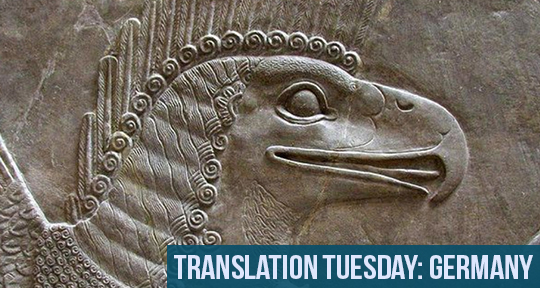In the prologue to Susanne Röckel’s uncanny novel The Bird God, we are transported to a remote, unnamed corner of Europe, sometime during the twentieth century. The vagueness of the setting is entirely intentional and adds to the unworldly character of the story. This opening passage reads like an ornithological expedition to the back of beyond. Indeed, the text is presented as the unpublished account of an inveterate birdwatcher, Konrad Weyde, whose unbridled ambitions and inner demons eventually prove to be his undoing.
Prologue
. . . It was, as I soon realized, that fabled region about which I’d read so much by the greats of my field. While the battered old locomotive was towed off to a depot, I was approached by several local taxi drivers sporting mustaches and muddy rubber boots who offered to drive me over the winding and pothole-ridden mountain road to the next railway station, but after glancing at the sky, which promised to be unusually bright and clear, I decided to remain right where I was and seek accommodation in the village of Z.—an irregular assemblage of leaning structures perched high among the cragged rocks, like the nesting site of a peregrine falcon.
The path that had been pointed out to me wound its way gently upwards through meadows, groves, and fields. At first glance, the landscape appeared picturesque, but as I trudged with my heavy bags I realized that my gaze had been clouded by the memory of the books that I’d read. Pechstein and von Boettiger had rhapsodized over the diverse views of the cultivated fields, green hills, gushing springs, and charming woodlands, with the stunning silhouette of the rocky peaks rising in the distance. Droste had—I particularly recall this passage from his Wanderings of an Inveterate Birdwatcher—described how the melodious singing of industrious peasant women had blended with the devout exultation of the larks. READ MORE…

